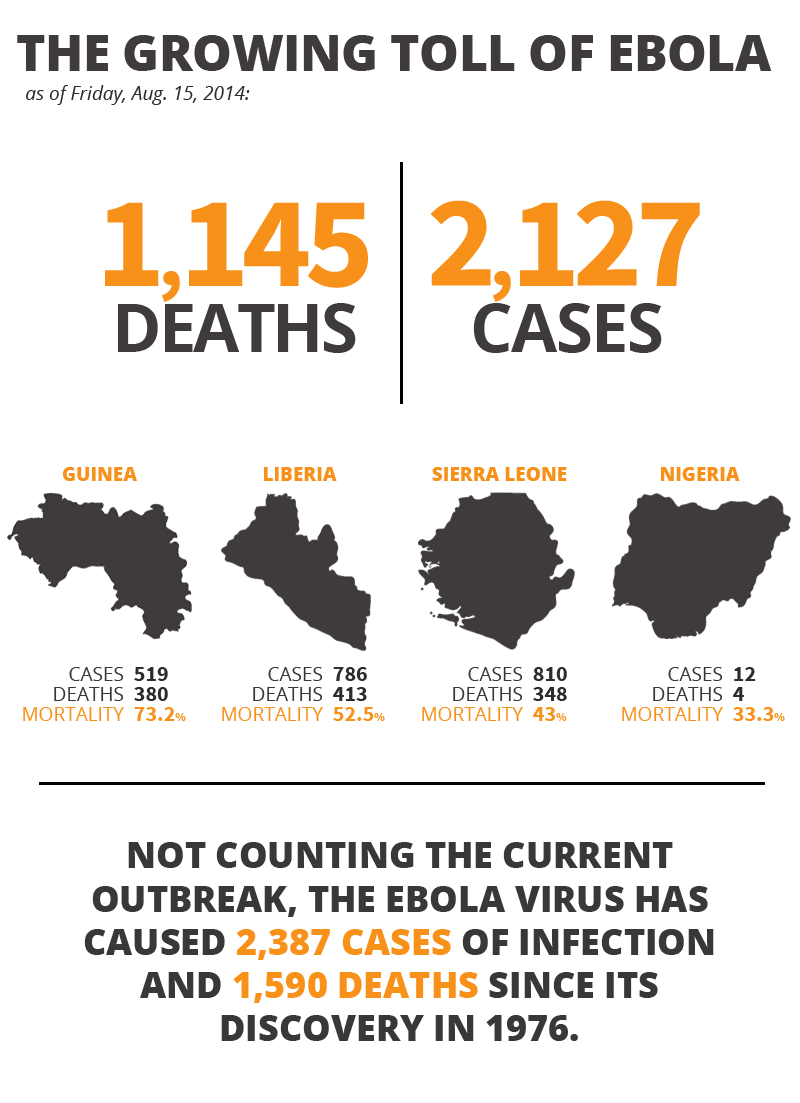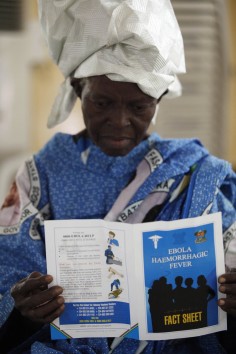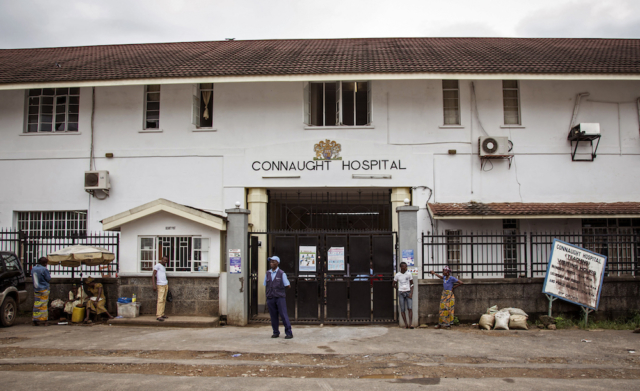Citing “an emotional climate of intense fear” that “extends well beyond West Africa,” the World Health Organization Friday appealed for calm, stating that “the general public is not at high risk of infection.” WHO also called for “realistic expectations” for experimental medicines and vaccines.
“The public needs to understand that these medical products are under investigation. They have not yet been tested in humans and are not approved by regulatory authorities, beyond use for compassionate care,” WHO said in a statement.

Data: WHO
At least 2,127 cases have been confirmed in the current outbreak, with 1,145 deaths across four countries. While Sierra Leone has had the most cases at 810, Liberia has had the most fatalities at 413, and Guinea has the highest mortality rate at over 72 percent. Nigeria has been comparatively unscathed at 12 confirmed cases and four deaths.

A woman reads a fact sheet for the Ebola virus during an awareness campaign in Lagos, Nigeria, Friday, Aug. 15, 2014. Photo: AP/Sunday Alamba
However, the organization cautioned Thursday that the toll could actually be far worse.
“Staff at the outbreak sites see evidence that the numbers of reported cases and deaths vastly underestimate the magnitude of the outbreak,” WHO said in a release, adding that the current outbreak was expected to continue for some time.
Related: Here’s what you need to know about Ebola
On Wednesday, a WHO panel advised that using experimental drugs was ethical, given the scale and scope of the current outbreak. However, those drugs have unknown side effects and are far and few between, with most supplies either completely diminished or extremely limited. While efforts are underway to accelerate the production of the experimental Ebola drugs, more won’t be available for months at the soonest. But WHO cautioned that “even then, supplies will be too small to have a significant impact on the outbreak.”
Even if experimental drugs become available, WHO noted that they can be extremely difficult to administer correctly. Some will need intensive care facilities in order to be administered, “which are rare in West Africa.”
WHO also cautioned against trying rumored cures and preventions for Ebola, as they can be dangerous. At least two died in Nigeria after drinking salt water, which was rumored to be protective.
 CGTN America
CGTN America A security guard stands outside Sierra Leone’s Connaught Hospital Friday, Aug. 15, 2014, where a leading doctor died from Ebola two days before. The Ebola outbreak could last another six months, and a medical worker acknowledged that the true death toll is unknown. Photo: AP/Michael Duff
A security guard stands outside Sierra Leone’s Connaught Hospital Friday, Aug. 15, 2014, where a leading doctor died from Ebola two days before. The Ebola outbreak could last another six months, and a medical worker acknowledged that the true death toll is unknown. Photo: AP/Michael Duff
